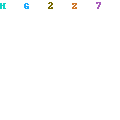A.W. Pink - The Sovereignty of God

For the next two blog posts, I would like to focus on an author that is not known to many in the evangelical world. In fact, this author was not well known until his death in 1952.
However, his writings have endured. Pink wrote many great books and the one I would like to focus on is The Sovereignty of God. There are a couple of elements I would like to point out. First, Pink is easy to understand. It is obvious that Pink was a down-to-earth pastor before anything else. Secondly, Pink is very pastoral. He is not simply trying to give the reader a nugget of theological truth, but is calling and compelling the reader to adhere to the truths. His words read like a sermon, much like our contemporary pastor today, John MacArthur. In this blog, I would like to briefly cover the first seven chapters.
The first chapter attempts to answer the question: is God in control or is the Devil? Simple question, but it one that many Christians ask. The question can be answered differently based upon one's view of God. Many view God as One who can be disappointed and One who can be caught off guard. Pink's answer to this "dilemma" is well said: "...it all depends if you are walking by faith, or by sight" (pg. 7). From this point on Pink directs us to Scripture. Pink's conclusion is that all things are worked together, both good and bad, according to the will of God. Pink is right! Scripture is full of passages explicitly stating that everything (yes, everything!) is in His control. The question then that comes to mind, "is this your view of God?"
In the next chapter, Pink defines the sovereignty of God as such:
"To say that God is sovereign is to declare that God is God."
This is a very simple, yet most profound statements I have read up to this point in his book. To say that God is sovereign is to declare all of God's excellencies! To say that God is sovereign is to declare that God is in control and there is nothing you can do about it (I do not mean that in a negative sense, but in a matter of peace). What a joy it is to know that God knows what we are going through because He is the One doing it!
The following chapter is the shortest of them all (4 pages total!); however, the truth is profound. Pink's flow of argument is if God is the Creator of all the cosmos, then He must have absolute sovereignty over it. God made all things according to His own good pleasure. When people ask, "Why did God make the mouse or the elephant the way He did?" Because He wanted to. He did it because it brought Him pleasure.
In the next chapter, Pink develops this idea more. Not only did God create the cosmos, but He is actively involved in how it is to operate. If God were not actively involved, it would be reasonable to conclude that creation would eventually destroy us. Who holds the waves of the sea? Who prevents hurricanes from developing year around? Pink goes further in stating that God governs animals and even governs man! Are we to say that Man is out of God's control? Scripture is clear in this point as well. Now, how that plays out with man's free will, that will be discussed next week.
In chapter six, we get to the heart of Pink's book: the sovereignty of God in salvation. This is the next rational step if we are to accept the truths from the previous chapters. Scripture is clear here as well when it states that God is the One who is calling a people. There is nothing we can do to save ourselves. Pink brought up the issue of foreknowledge which I found very enlightening. There are some who argue that God's election is based on God's foreknowledge that some would come to believe in Christ. I understand where this position is coming from because they are trying to preserve man's free will, but I think it is still unbiblical, as Pink points out. How can one who is dead (Eph. 2:1) in sin make a choice to accept Christ, or for that matter, do anything that is not sinful? Dead people and things are unresponsive, it is God who must perform the greatest miracle: saving a soul from hell. This causes me to be overwhelmed with gratitude and joy, knowing my God chose me!
Finally, Pink discusses in the next chapter the decrees of God. Many would not have a problem that God foreknows all things, but it is something different if God fore-ordained all things. To illustrate this, Pink pulls from 1 Peter 1:20 to argue that God decreed before the foundation of the world, the crucifixion would take place, even before the Fall. With this in mind, Pink give a great definition for prophecy:
"The hundreds of prophecies which are found in the New and Old Testaments are not so much predictions of what will come to pass, as they are revelations to us of what God has purposed SHALL come to pass."
Pink then distinguishes between how God deals with the righteous and the wicked. For the righteous, God is empowering and enabling them to carry out His will. For the wicked, God is preventing them from performing more wickedness than they would naturally do and sometimes will use what wicked men meant for evil and mean it for good. We see this in the story of Joseph in Genesis.
In the next post, we will wrestle with the notion of God's sovereignty and how that plays into our free will.




0 comments:
Post a Comment